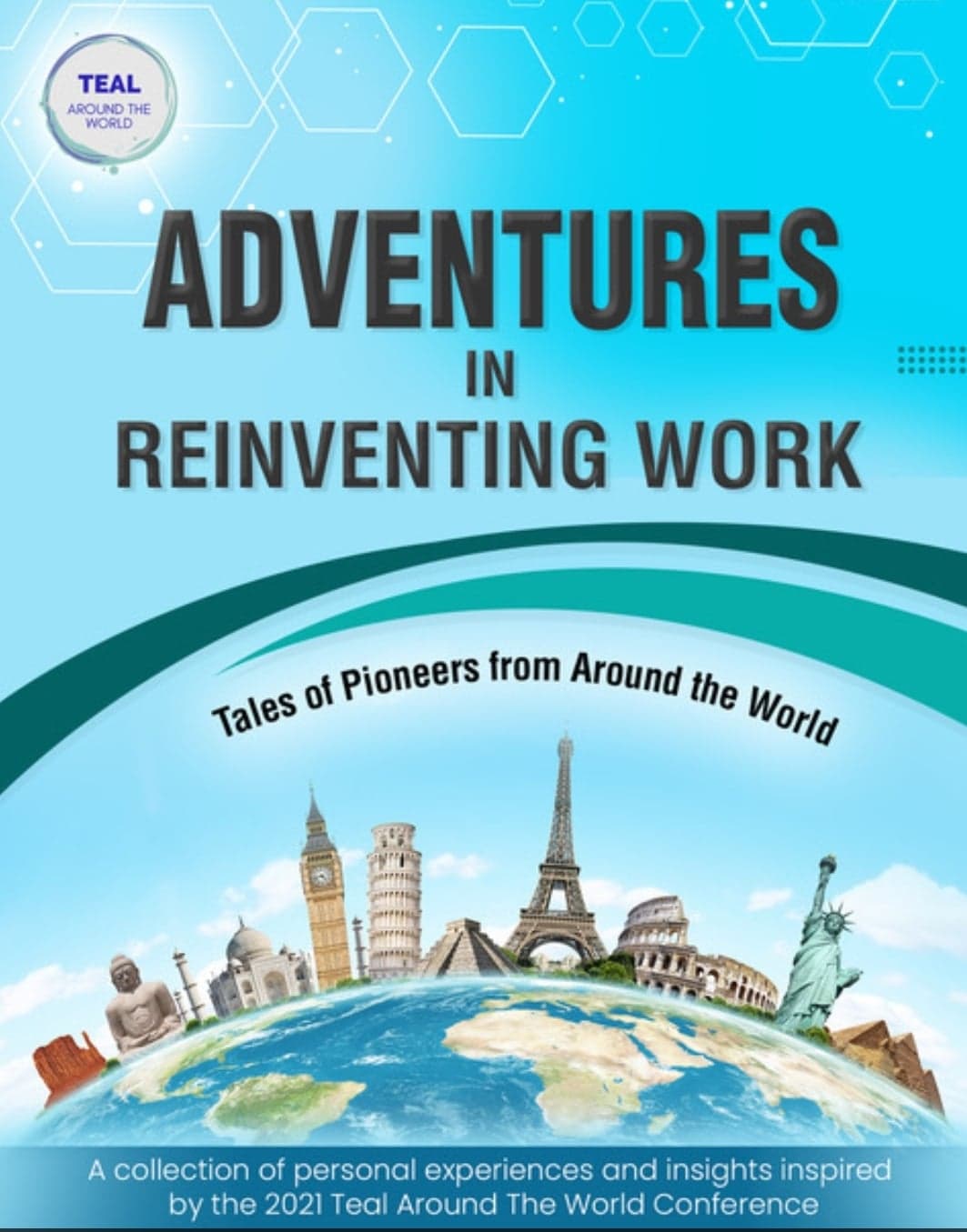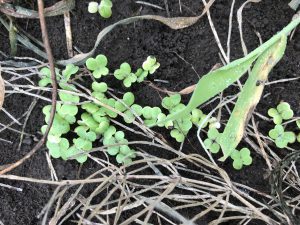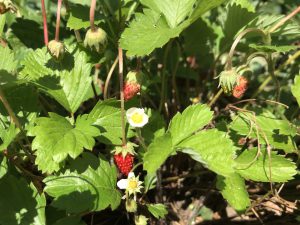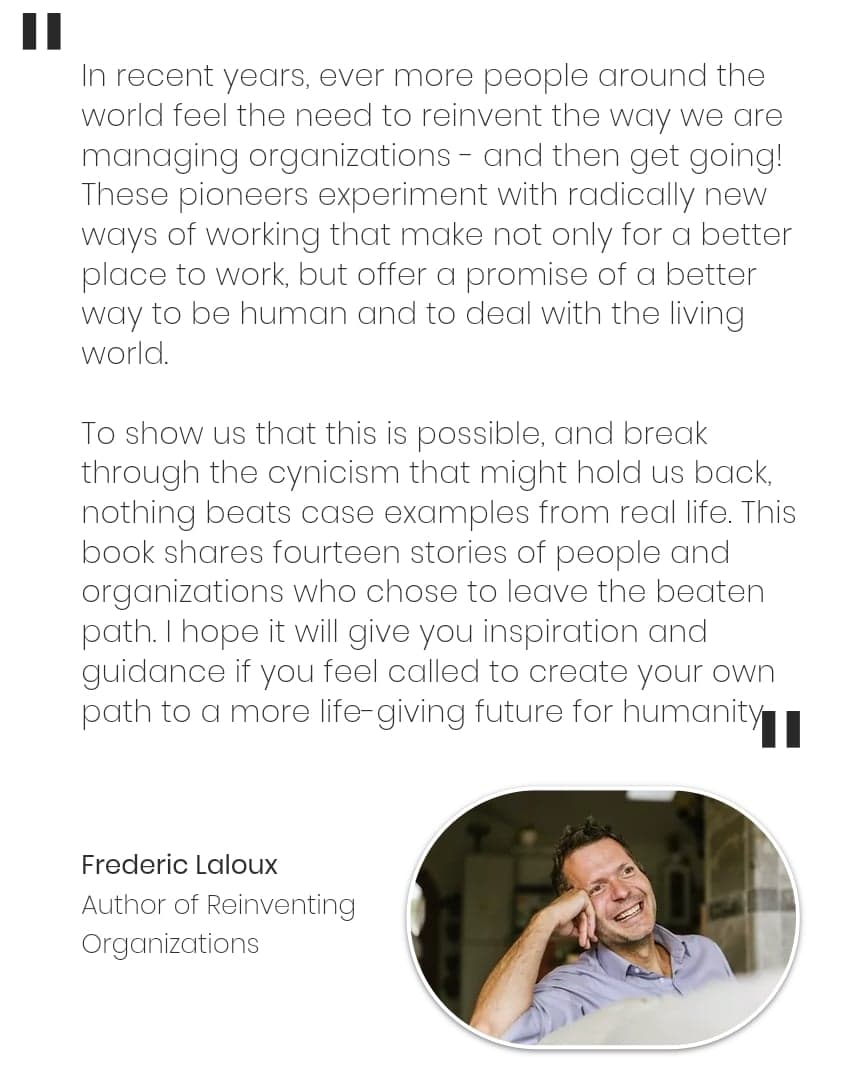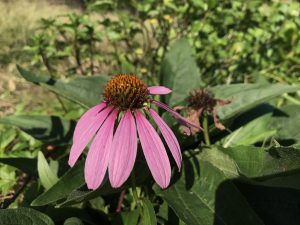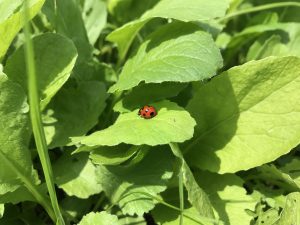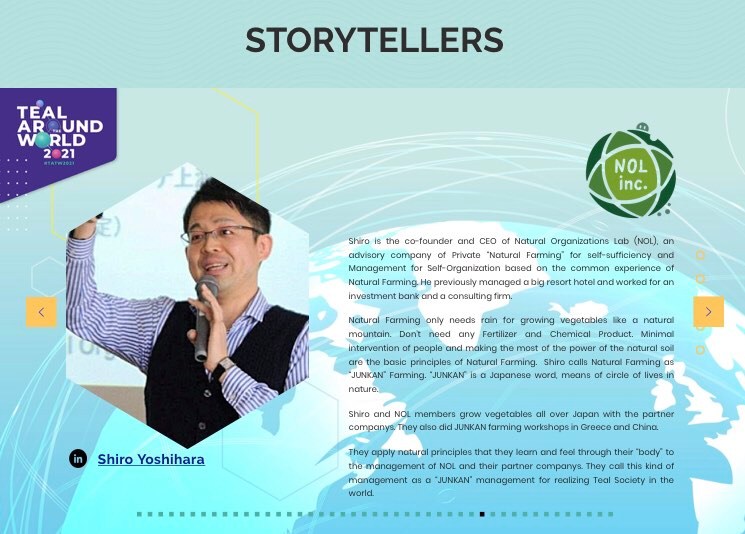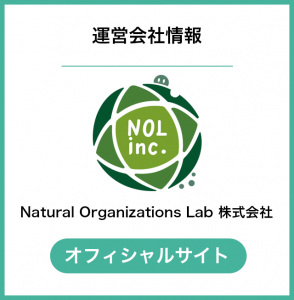Lessons on Life and Management from a Junkan Field
From “ADVENTURES IN REINVENTING WORK”
Shiro Yoshihara and Natural Organizations Lab – Japan
Imagine your organization could use less energy and fewer resources to produce superior results. What if those results were not only sustainable, but also self-reinforcing and self-correcting with little to no intervention required? Perhaps a living system perspective provides the key.
“Junkan” (循環) is a Japanese character meaning “natural flow from interactions of all lives in nature.” A garden created with Junkan principles does not need chemical fertilizer, pesticides, or extra watering beyond natural rainfall. The field thrives and produces healthy crops based primarily on the quality of the soil and the use of native plants with mutually beneficial relationships.
In Japan, it is typical to consider humans as an integral part of nature, not apart from nature as is common in Western thinking. So the concept of letting plants grow without interference and the concept of letting people work and grow without interference are quite compatible and logical. Shiro Yoshihara’s life and work at Natural Organizations Lab (NOL) are devoted to applying the valuable lessons from a Junkan field to help people, organizations, and communities flourish naturally.
A change for the good
As the son of a historian, whose name means “boy of history,” Shiro learned at an early age about the challenges faced by changemakers from the past who dared to go against the prevailing wisdom of their time. He did not know it then, but this connection to the arc and patterns of history prepared him for his own tough challenges.
Shiro began his career at an investment bank. One day he was asked to work at a resort hotel in the countryside as a general manager. The resort was in bankruptcy undergoing business restructuring by the bank. Shiro was just 27 years old. As general manager, the restructuring process was difficult, yet he gained a broad base of experience in management, executing a restructuring plan, and creating a self-organizing culture based on trust, strong relationships, and personal authenticity.
After two years, the resort became profitable and Shiro decided to pass the baton to the next general manager. He felt ready to apply his management skills as well as his appreciation for living in the countryside and enjoying nature to a new career path. From both a developing interest in growing vegetables and a desire for self-sufficiency, Shiro and his wife Yuko started a vegetable garden using Junkan principles.
With considerable time and patience, and following a “do nothing” farming philosophy, the gifts he received from the garden were far greater than just the vegetables. He developed a deep connection and appreciation for the intelligence, beauty, and creative capacity of a natural ecosystem. His path forward became clear; natural gardening can show people and organizations how to align their thinking and actions to meet the complex demands of a rapidly changing, interdependent world. Natural Organizations Lab was born.
A helpful ally
In the fall of 2015, Shiro discovered the English version of Reinventing Organizations by Frederic Laloux. He was delighted to notice that the core principles around wholeness, evolutionary purpose, and self-management presented in the book were very well aligned with his learnings from the Junkan garden. Shiro felt validated and inspired by this discovery. So he reached out to Frederic who was living in an eco-village in Ithaca, New York, with some Japanese friends.
Shiro was truly fortunate to have the opportunity to visit him at the village. To his surprise, Frederic was very interested in Permaculture gardening and “lazy farming,” a natural way to garden using plants suited to the local ecosystem and climate. He had even read Shiro’s article on Natural Farming written in English. They developed an immediate connection.
“Vegetables grow naturally and so do people, so why do they need to be told what to do?” Yes, this natural farming approach could be instrumental to help leaders shift their perspective about management to fit the complex and challenging reality of the 21st century. Shiro now had both the conviction and the confidence to act toward his vision of creative, intelligent, adaptive, living organizations.
The easy path or the long hard road
Interest and momentum around Reinventing Organizations picked up considerably in Japan with the Japanese translation of the book. “My timing is great!” thought Shiro. “I can really help people experience evolutionary purpose as a living energy that sustains and nourishes an organization. I can illustrate a sense of wholeness, of interdependence and integration that enables an organization to experience continuous change while remaining strong and vibrant. I can convey self-management as creating healthy soil or natural conditions to enhance mutually beneficial relationships, instead of a winner versus loser mentality.”
Shiro could clearly see all three principles working together in a circular fashion to naturally reinforce one another, just like a Junkan field. At first, many leaders and organizations were eager for Shiro’s advice and assistance. They were all looking for new and innovative ways to increase workplace efficiency. “Our employees and customers will love these natural ideas,” they thought. Unfortunately, most CEOs were really going after superficial changes that would enhance their marketing and brand.
The patience and commitment required for a fundamental shift in perspective, thinking, and action were not there. Shiro faced a difficult choice. “People wanted me to teach them a method with immediate impact. Yet I knew deep down that this approach conflicted with my beliefs and commitment to natural organizations.” As a boy of history, Shiro knew in his heart that he had to take the longer, harder road.
From clients to collaboration partners
When Shiro made the choice to forgo short-term, transactional client relationships, NOL’s revenue declined. It was not easy. Yet he knew it was essential to find partners who shared his vision and who wanted genuine collaboration in applying these natural principles for long-term benefit.
Shiro experienced many low points in pursuit of his purpose. He lost money, lost time to relax, and even lost some business partners. He felt frustrated and he cried. He even received a letter from the city administration asking him to stop his work with the Junkan fields. The city was unfamiliar with this natural way of farming and they were afraid of an increase in insects and weeds. Fortunately, a friendly dialogue with city representatives satisfied their concerns. “I was a bit stubborn. People saw me as an ideologue. However, I never wavered because I was interested in essential change.”
Frederic Laloux offered Shiro and Yuko words of encouragement when he came to Japan for a conference. Spending time at the Junkan fields with collaboration partners also provided comfort and hope. Not only did they exchange money, but they could also exchange vegetables. Finally, he met a business owner who wanted a Junkan field at his home, providing Shiro with needed income as well as confidence.
Over time Shiro’s connections and influence started to grow. He visited Greece with his wife to share his knowledge and ideas with participants at an event on new business practices such as self-management. He then started to create the design and development of a Junkan Village in Japan.
Big changes by starting small
For Shiro an important lesson for today’s complex, uncertain times is to listen and learn from nature. The wisdom of a Junkan field can be understood only with all the senses, the body, and the heart, not just with the head. Jumping to quick fixes and superficial solutions to complex problems is not a recipe for success.
He recommends that people start with a small natural garden or planter at the office or at home. Use it as a source of creative nourishment to heighten your power of observation and intuition. Gather around the garden with others for conversation and contemplation. Can you tune into the unseen? Can you begin to share the deepest voices in your heart? Can you sense future possibilities that are wanting to emerge? Can you develop an appreciation and joy for life that improves the quality of the “cultural soil” in which you live?
Consider the various roles on your team, in your organization, or your community from a viewpoint of mutual benefit. What is the unique talent and character of each person? How could roles be designed to cultivate the creative potential of both the individual and the whole team or group? Consider how evolutionary purpose and natural connections influence behavior versus strict rules, rigid job descriptions, or departmental barriers.
Shiro has come a long way since his first Junkan field. He now has a network of more than 25 partners with plans underway to create whole communities and villages following the Junkan philosophy and practices. A healthy natural garden illustrates that less force and less intervention can lead to amazing results.
Benefits of a living system perspective
How can organizations grow in a sustainable way while facing rapid change and uncertainty? The purpose of Shiro and Natural Organizations Lab is to show a pathway forward. It has been a struggle for Shiro requiring courage and determination to challenge mainstream beliefs and accepted practices. However, he could not deny the truth, the elegance, and the wisdom of his first Junkan field.
Shiro believes that humans have lost the simple sense of wonder, the natural excitement and energy that come from a deeper connection to life. “I especially value the relationships I have with people who can look at a blooming vegetable flower and feel, wow, that’s beautiful, that’s amazing. I also try to share the joy of nature in a way that resonates with all the people I meet.”
As nature scales, it requires less input to sustain its larger size. A mature ecosystem requires less energy and fewer nutrients while supporting a greater diversity of species and showing greater resilience to changing conditions. Shiro knows that humans need a fundamental shift in their relationship with the world around them to flourish in the future. He believes that the flow of life in nature shows us the way.
“Let’s create a society where the natural flow from interactions of all lives in nature is valued. That is what I want to leave behind for future generations!”
Written by Betsy Sheppard
About Shiro Yoshihara
Shiro Yoshihara is Co-founder and CEO of Natural Organizations Lab (NOL), an advisory company based on the common experience of Natural Farming. Shiro and NOL members grow vegetables all over Japan with their partner companies.
They also provide Junkan farming workshops in Greece and China. Natural principles, learned and felt through the body, guide the management of NOL and their partner companies.
Shiro and his wife Yuko live in the countryside next to their Junkan field. They enjoy observing the field and connecting the seeds.

